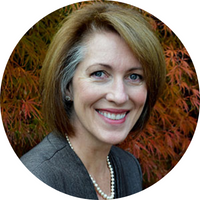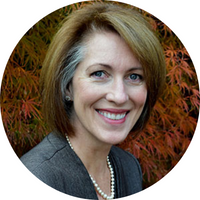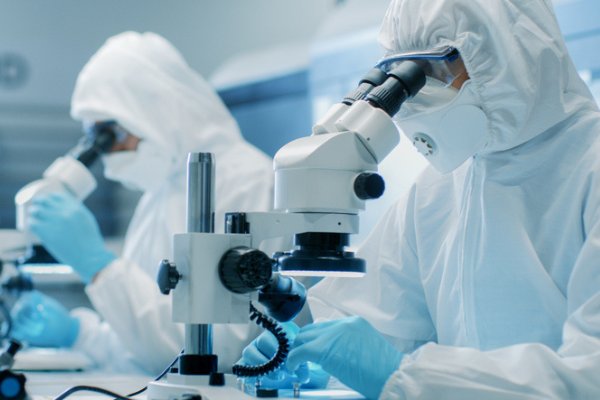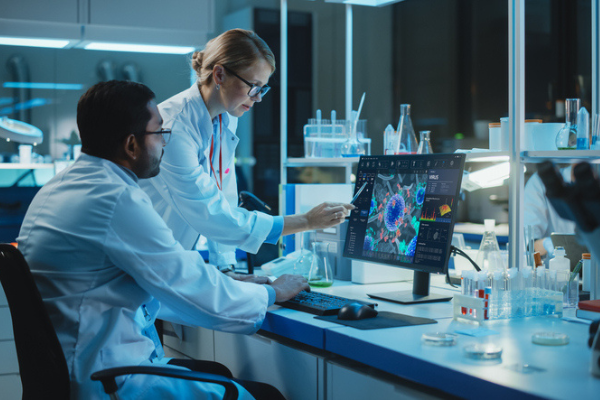
What is the best professional advice you have ever received? Best professional advice you have ever given?
Don’t dilute. Bob Clemens once gave me that advice to impress upon me the need to pick a limited number of topics, trends, or goals, to allocate my attention to at one time. I took it to heart, and if I get asked to do something that isn’t in one of those buckets, chances are good that I will decline.
Best advice I’ve given? Don’t break things, don’t burn things, and you’ll get along just fine. Seriously, I think the nugget I have received the most thanks for has been the four questions you should ask when you’re facing a new opportunity, and in particular, one that seems incongruous with your career path or goals. I now coach people to ask these questions before accepting a new assignment, or to specifically address them whenever they’re asking an employee to get out of their comfort zone.
- What does the company get out of my being in this position?
- What do I get out of it?
- Why do you think I am uniquely suited for this position?
- What are my other options?
There are so many transitions that would go more smoothly if these simple questions were answered up front.
What non-technical skills are most responsible for your significant career advancement?
Communication and adaptability.
It’s a running joke in my family that no matter where we go, we’ll run into someone I know. If I walk into a room and don’t know anyone, I will by the time I leave. My “gift of gab” has enabled me to meet and form relationships with a wide variety of people. As loquacious as I can be, I also spend a great deal of time listening, which is the mainstay of good communication.
That ability, in turn, enables me to do other things, like influence situations. When you take the time to really listen to what the other person is saying and understand their issues, you can then determine what you can do for the situation. Sometimes the best course of action is to do nothing, which is an option that many of us “doers” tend to forget about.
Being adaptable and allowing yourself to get out of your work comfort zone allows opportunities to present themselves and is a catalyst for growth. If getting out of your work comfort zone isn’t your strong suit, think of it as a stretching exercise. You start by holding the position for a few seconds, then over time, you add more seconds, a little at a time, until you are palming the floor without difficulty.
Getting out of your work comfort zone is the same. While I have, on occasion, just put my palms on the floor and worked backwards, I suggest that you do it in steps. If you want to specialize in catalysis for your career, try practicing catalysis in a new area or environment. Every experience has something good to offer; you may have to look hard to find it, but it’s there.
Based on what you have observed, do mid-career chemists take sufficient responsibility and initiative to advance in their careers? What advice do you have for them, as they operate in a dynamic and challenging work environment?
I think that depends on the chemist and what they want out of life and their careers. I would say that most of my peers have done a pretty good job. Some of the current generation of mid-career scientists actively prepared for advancement early in their careers, for the opportunities they were told to expect from job turnover that didn’t necessarily happen. But there are some that find that once the excitement of being a new graduate has waned and family pressures increase from both sides (kids & aging parents), it’s easy to lose focus on their career and neglect to prepare for advancement, or for an unanticipated career shift.
My advice is to never get too comfortable. If you feel like you are getting stale or the job is getting easy, it’s time to do something different. You should always be learning something new, applying what you know in a new way and making new connections. You are building a tapestry, so weave each piece into something useful and you will be proud of what you end up with. You don’t have to change positions as often as I have, but you do have to show continual growth. That helps keep you marketable if you find yourself seeking employment. Take an honest look at your resume and ask if you would give it a second look if you were looking to hire someone. If the answer is no, do something about it, starting today.
The best way to prepare for your next position is to perform well in your current role. Look for ways to learn on the job and ways to get the growth you need, like spending part of your time on a project where you can learn new skills, or exercise ones that you don’t use every day. Volunteering with a professional organization like ACS is also a good avenue for training, and can provide a good support network for the times you need a boost.
Is Eastman Chemical currently accomplishing more innovation through leveraging internal or external resources?
Overall, the balance weighs toward internal resources, but that is to be expected since they are the lion’s share of our allocation. Our external partnerships inform and accelerate our overall innovation strategy. Everything that we do externally compliments our internal efforts to fill in knowledge or capability gaps.
How would you characterize the workplace environment for female chemists starting their careers today vs. when you began your career? What advice do you have for women chemists?
The number of women in chemistry has continued to grow. Today, the chances are good that you won’t find yourself as the only woman, or one of two women, in your entire department, and now you can usually find at least one female manager that you can turn to for perspective. This decreases the feeling of being an outsider and means that the female voice is now more likely to be heard.
That was not the case when I entered chemistry and even less so for women who are late in their careers. We owe gratitude to people like Marcetta Darensbourg and Dorothy Phillips and to the men who supported them. They provided a path for folks like me to have it a little easier, and hopefully that has been passed on and multiplied for the next generation. My current office environment consists of all women with advanced degrees, which would have been unheard of when I entered the workforce. (Yes, it is pretty awesome!)
There are definitely more women mentors than there used to be, but they are still in short supply, so find both female and male mentors. There are plenty of men out there who want to help you, too! Remember that feedback is a gift. It’s easy to get caught up in well-meaning, but negative feedback, and you should look for the truth in what you hear to make productive alterations to your behaviors, but don’t lose yourself in the process. You may do things differently, and that is just fine. At the end of the day, you have to have a great relationship with you or you won’t have great relationships with others.
How does a recent chemistry graduate know whether or not to pursue a Ph.D.? What should they think about?
I think they should answer some philosophical questions before embarking on the graduate school journey. WHY do they want to pursue a Ph.D.? Is it for the love of the subject? Does it fit in with their career goals? Sometimes an M.B.A. would be a better investment. What are they passionate about? Is the result (time, money and outcome) worth the time, money and effort? What is the next best option? What is the Plan B, if things don’t work out?
Are chemistry grads and post-grads emerging from their academic careers with sufficient safety knowledge and training for a career in industry?
Unfortunately, no, they are not. However, there are pockets of excellence and programs that are striving to change the status quo. The ACS and other organizations are working to increase the focus on safety in the academic world in order to better prepare graduates for the workplace. Harry Elston summed it up quite well in your recent interview with him.
Describe the approach you have taken to successfully establish and maintain a rigorous safety culture. Any reason your approach couldn’t be employed in other workplaces?
My approach has been very open, with clear expectations. I feel pretty comfortable saying that anyone who has worked with me knows that I expect safety to come first and if something were to happen, we are going to learn from it to prevent it from happening again. Jerry Ehrman, the plant manager at my first industrial job, had a great recipe for staying safe and, although I might not have the order correct, I still abide by and recite it to others today.
- You have the time to do the job safely
- Follow procedures in the order they are written
- Wear your PPE
- Make the right choices
This gets to the heart of so many incidents and can be applied anywhere.
What’s been the most gratifying aspect of your industry career to-date?
Watching others grow. I’m working with people that I had a hand in hiring and it’s been wonderful to see how they have grown since the last time I worked with them.
When I think about me personally, my current position is very rewarding. I am literally drawing on every past experience I have had: safety, benchwork, process understanding, contracts, human resources, mentoring, portfolio management, and external relations. I’ve had a few job rotations in the past that made folks scratch their heads, but I’ve learned from each experience. It’s really fun to bring it all together now in an environment where I literally get to learn something new every single day.
What are the most important technical and non-technical trends industry chemists should monitor over the next 3-5 years, in order to position themselves to advance professionally?
I think artificial intelligence is going to be a game changer in how we approach research in the future. Learning to interface with it and using it to translate these gigantic data sets into useful knowledge will be key as we move in that direction. The non-technical skills will continue to be differentiators. Teams aren’t just multi-cultural, they are multi-disciplinary.
As science converges, being able to communicate with people who don’t speak your native or technical language will be very important. All the “essential skills” that take time to develop in a world lacking patience – leading without authority, active listening, seeking to understand, etc. – become all the more important.
You like to cook – what specifically do you like about cooking? And if some ACS Industry Matters readers stopped by your house, what would you cook for us?
I trained as a synthetic chemist because I like to make things. The nice part about using my kitchen as a lab is that when the experiment is complete, I can do another favorite activity, EAT! I like getting each part of the meal to taste great on its own and work well with the other parts of the whole meal. When all the elements come together in harmony for a lovely meal with friends, that’s a piece of heaven on earth for me.
As for whipping something up… herb crusted chicken, arugula & wild rice salad, savory green beans with crusty bread and homemade lemon ginger ice cream or for those with a more Texan palate, brisket, potato salad, green beans, coleslaw, a cold Shiner Bock rounded out with a brownie and ice cream. Of course, during the holidays, it’s cookies, cookies, cookies!

Dawn Mason is an External Innovation Manager at Eastman Chemical Company in Raleigh, N.C. where she is influencing front-end innovation by identifying and leveraging external resources to accelerate internal growth initiatives. Since her arrival at Eastman in 2003, Mason has been a contributor across a broad spectrum of areas that range from bench chemist to enhancing workforce capabilities. Prior to her arrival at Eastman, Mason worked with E. I. DuPont de Nemours & Co. as an area superintendent and R&D chemist. Mason earned her B.S. from the University of Missouri-Columbia and her Ph.D. from Texas A&M University. Throughout her career, she has used her combination of scientific expertise and people skills to drive a safety culture which has resulted in zero injuries to direct reports without sacrificing business results.
Dawn is an ACS Fellow, the current past-Chair of BMGT, and serves as an advisor to universities. Away from work, Dawn is raising a young man, enjoys playing outside, and cooking.
This article has been edited for length and clarity. The opinions expressed in this article are the author's own and do not necessarily reflect the view of their employer or the American Chemical Society.
Copyright 2020 American Chemical Society (All Rights Reserved)







